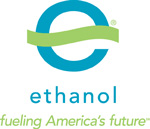Ethanol makers, who have been having a tough time making ends meet as their primary feedstock skyrocketed in price, are finally seeing some relief in lower prices… and better bottom lines.
This Aberdeen (SD) American News article posted on the Chicago Tribune web site has details:
The industry, which buys corn to make ethanol, has been finding it tough to make even a tiny profit, said ethanol consultant Mark Luitjens of Aberdeen, who has been part of the industry since 1992.
“For the past few months, the plants have struggled, and some have had negative (profit) margins,” he said. “Today, with the current cash price of corn and the price of ethanol, the plants are very close to breaking even or making a little money.”
Corn’s cash price was $5.21 a bushel late last month in Aberdeen. In late June and early July, it surpassed $7. Ten years ago it was $1.50, the lowest it had been since the 10 years before. The average for the past 15 years is $2.25 to $2.35, Luitjens said.
“Then the past couple of years it just went wild.”
Now it’s taming down. The futures price is $2.20 a bushel less than it was three weeks ago, [Nathan Schock of Poet, a Sioux Falls-based ethanol enterprise] said.
The story also says that much of the rise in corn prices has been fueled by speculators… and not any real supply-and-demand factors. Those in the ethanol industry are hopeful that speculation is over and real market forces, such as the expected large corn crop this year, will help keep corn prices in a range where farmers and refiners can make some money.
 The role of ethanol in rising food costs will be at the heart of a Senate Agriculture Committee field hearing August 18 in Omaha.
The role of ethanol in rising food costs will be at the heart of a Senate Agriculture Committee field hearing August 18 in Omaha.

 Besides the contest between Sens. McCain and Obama to see who will lead this country over the next four years, voters who go to the polls in California this November will decide if the state will fund some hefty rebates to people who buy cleaner-burning, natural gas-powered vehicles.
Besides the contest between Sens. McCain and Obama to see who will lead this country over the next four years, voters who go to the polls in California this November will decide if the state will fund some hefty rebates to people who buy cleaner-burning, natural gas-powered vehicles. Pretty good deal when you’ve got someone who will buy your entire inventory for three years. That’s what Virginia-based
Pretty good deal when you’ve got someone who will buy your entire inventory for three years. That’s what Virginia-based  The
The  According to EPA, “implementation of the RFS would have no significant impact in the relevant time frame (the 2008/2009 corn season), and the most likely result is that a waiver would have no impact on ethanol production volumes in the relevant time frame, and therefore no impact on corn, food, or fuel prices.”
According to EPA, “implementation of the RFS would have no significant impact in the relevant time frame (the 2008/2009 corn season), and the most likely result is that a waiver would have no impact on ethanol production volumes in the relevant time frame, and therefore no impact on corn, food, or fuel prices.”

 The biodiesel industry is also pleased with the ruling.
The biodiesel industry is also pleased with the ruling.  The Environmental Protection Agency announced Thursday that it would deny a request by Texas Governor Rick Perry to reduce the Renewable Fuels Standard.
The Environmental Protection Agency announced Thursday that it would deny a request by Texas Governor Rick Perry to reduce the Renewable Fuels Standard. “The suggestion that increasing demand will lower oil and gasoline prices is not only contrary to Economics 101 and what independent analyses by Wall Street firms, government agencies, and academic institutions have concluded,” said Dr. Mark Cooper, CFA’s Director of Research, “but the study’s authors do not provide one shred of evidence to support their strange argument.”
“The suggestion that increasing demand will lower oil and gasoline prices is not only contrary to Economics 101 and what independent analyses by Wall Street firms, government agencies, and academic institutions have concluded,” said Dr. Mark Cooper, CFA’s Director of Research, “but the study’s authors do not provide one shred of evidence to support their strange argument.”  The first company to make biodiesel in West Virginia is now helping fuel school buses in the state.
The first company to make biodiesel in West Virginia is now helping fuel school buses in the state.